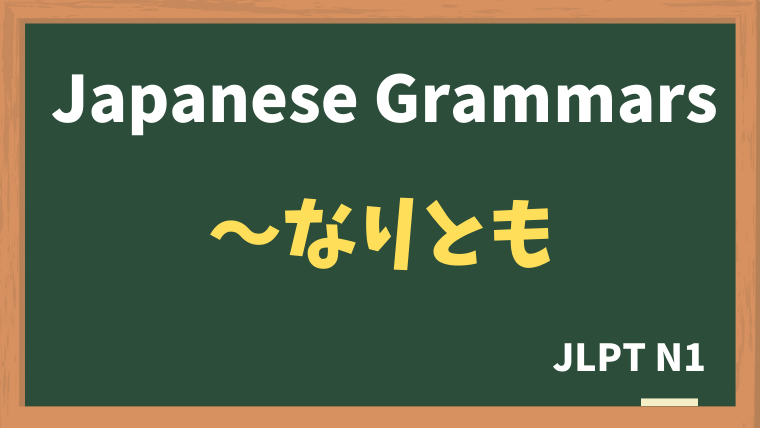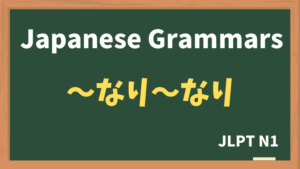
Explanation:〜なりとも
fa-check-circleMeaning
"わずか〜でも / せめて〜だけでもいいから"
Used to indicate even a small amount or degree of something. It conveys a sense of minimal expectation or hope, suggesting that the speaker would be satisfied with even a little bit of something, no matter how small. It is typically translated as "even just," "even a little," or "at least" in English. It is often used in requests or suggestions.
fa-check-circleForm
N + なりとも
fa-check-circlePoints
- Minimal Expectation or Hope: "〜なりとも" expresses that the speaker would be content with even a small portion or slight action, showing a sense of compromise or modest expectation.
- Often Used in Requests: It is commonly used when asking for something or hoping for some action, even if it’s minimal.
- Polite or Formal Tone: This expression is relatively polite and formal, often used in written language or formal speech.
fa-check-circleJLPT Level
N1
fa-check-circleNote
古い言い方なので、会話ではあまり使いません。友達と話すときはよく「せめてNだけでも」を使います。
Sample sentenes
わずかなりともチームに貢献できたのであれば、嬉しいです。
If I was able to contribute to the team, even if just a little, I would be happy.
もし機会があれば一目なりとも会ってみたいです。
If there is a chance, I would like to meet at least once.
悪いのは私たちですが、せめて小額なりともお支払いいただけませんか。
We are at fault, but could you at least pay a small amount?
彼のことはあまり好きではないが、彼の言っていることにわずかなりとも共感できるところがあった。
I don’t like him very much, but there were aspects of what he said that I could empathize with, even if just a little.
Vocabulary
| Japanese |
English | |
| 貢献する | こうけんする | to contribute |
| 小額 | しょうがく | small sum (of money) |
| 共感する | きょうかんする | to sympathize |






